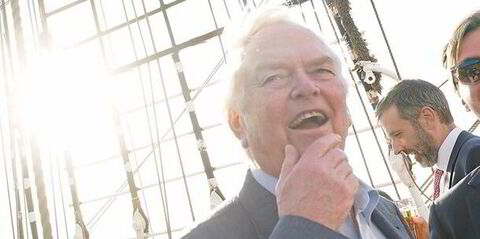The non-governmental organization has asked Koji Sekimizu, secretary general of IMO, to make the emission regulation politically possible.
CSC wrote: “The draft Paris text maintains the IMO’s authority, but states that it must use this authority to introduce measures to ensure that when trade grows, emissions do not grow with it.
“We know it is technically possible; now the IMO must make it politically possible.”
Sekimizu wrote on Monday: “IMO regulations already in force will ensure that emissions per ship will be significantly reduced. But what they cannot do, and what shipping cannot do, is control the total global demand for cargo to be carried.
“This is directly related to growth in the global economy. But, if the global economy grows, demand for shipping will grow as well; which means that, even though emissions per ship will be greatly reduced under established IMO measures, the overall emissions from the sector may actually increase.”
CSC claims the latest emission reductions have been the result of slow steaming which is a result of over-capacity of the fleet.
"When demand catches up with the supply of ships there is nothing to stop ships returning to their design speeds and emissions ballooning," CSC wrote.
However shipping sources were quick to defend the IMO’s role in emissions reduction.
They pointed out shipping is the only industrial sector regulated by a binding global agreement to reduce CO2 through the Marpol Convention’s Energy Efficiency Design Index (EEDI) which entered into force worldwide in 2013.
Under the EEDI regulation all ships built from 2025 must be 30% more efficient than ships built in the 2000s.
EEDI applies efficiency standards to newbuildings equally to ships registered with developing countries as those under rich nations' flags.
If the Kyoto Protocol applied under the Common But Differentiated Principle - which excludes developing countries from emissions reduction targets - only 30% of ships would be covered by the regulation.
One source said: “The suggestion that ships built today are less efficient than those in the 1980s is ridiculous, and the fact that fuel remains the industry's largest cost by far means that slow steaming is here to stay and it will probably be many years before current overcapacity is removed by any increase in demand for shipping services.”
A proposal from the Marshall Islands on emissions reduction targets for shipping is set to be debated by the IMO at the next Marine Environment Protection Committee meeting in April 2016.
Sekimizu said the need to reduce emissions from ships has been clearly understood by the IMO but added the history is certainly on the side of growth.
The Paris climate conference will be held in December and the new agreement will be implemented from 2020.



